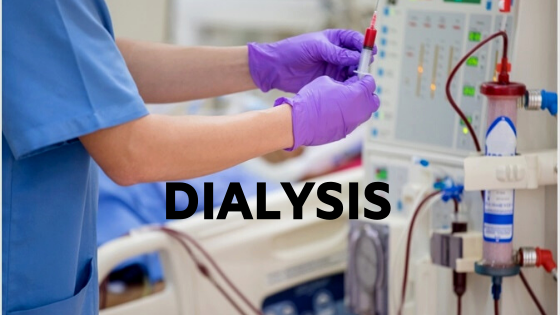Dialysis is needed if your kidneys don’t function satisfactorily on their own. Kidney injury usually progresses over quite a few years as a consequence of long-term ailments like diabetes mellitus, high blood pressure, kidney inflammation, multiple cysts in the kidneys. The benefits of peritoneal dialysis in comparison with hemodialysis may include, greater lifestyle flexibility and independence. These might be particularly important if you work, traveling or reside far from a hemodialysis center. More flexible dietary guidelines. Peritoneal dialysis is done more frequently than hemodialysis, resulting in less accumulation of potassium, fluid and sodium.
Peritoneal dialysis is a way to eliminate waste products from the blood when your uterus can no longer do the job satisfactorily. A cleansing liquid flows through a tube to part of your stomach and filters waste products in the blood. After having a prescribed time frame, the liquid with filtered waste products flows from your stomach and is discarded. Peritoneal dialysis is different from hemodialysis, a more commonly used bloodstream flow procedure. With peritoneal dialysis, you can provide yourself remedies at home, at work or while vacationing. Peritoneal dialysis isn’t an option for everybody with kidney failure. You need manual dexterity and the capacity to look after yourself at home, or a trusted caregiver.
Peritoneal dialysis doesn’t require intravenous access, which can interrupt your circulation and fluid levels. Longer lasting residual kidney function. Individuals who use peritoneal dialysis could keep renal function slightly longer than individuals who use hemodialysis. Your physician will discuss with you the kind of dialysis that is best for you.
Things to consider include: Your kidney function, as measured by the bloodstream and urine tests – Your state of Health – Your personal tastes – Your home scenario – Peritoneal dialysis can be the better option if you:
Can not tolerate the rapid changes in water balance associated with hemodialysis – Wish to minimize the interruption of your Daily activities, and work or travel more readily – Have some residual kidney work – Peritoneal dialysis may not work if you’ve!
Extensive surgical scars on your stomach – A large area of diminished abdominal muscle – Limited capability to care of oneself, or even a lack of caregiving support – Inflammatory bowel disease or even frequent bouts of diverticulitis – Protein malnutrition – Critical illness – Most individuals who start dialysis using peritoneal dialysis will ultimately experience a decline in kidney work and will require hemodialysis or kidney transplant.
Risks
Complications of peritoneal dialysis may include! Infections. An infection of the abdominal lining is a very common complication of peritoneal dialysis. An infection may also develop at also the site where also the catheter is inserted to carry also the cleaning liquid into and out of your abdomen.







